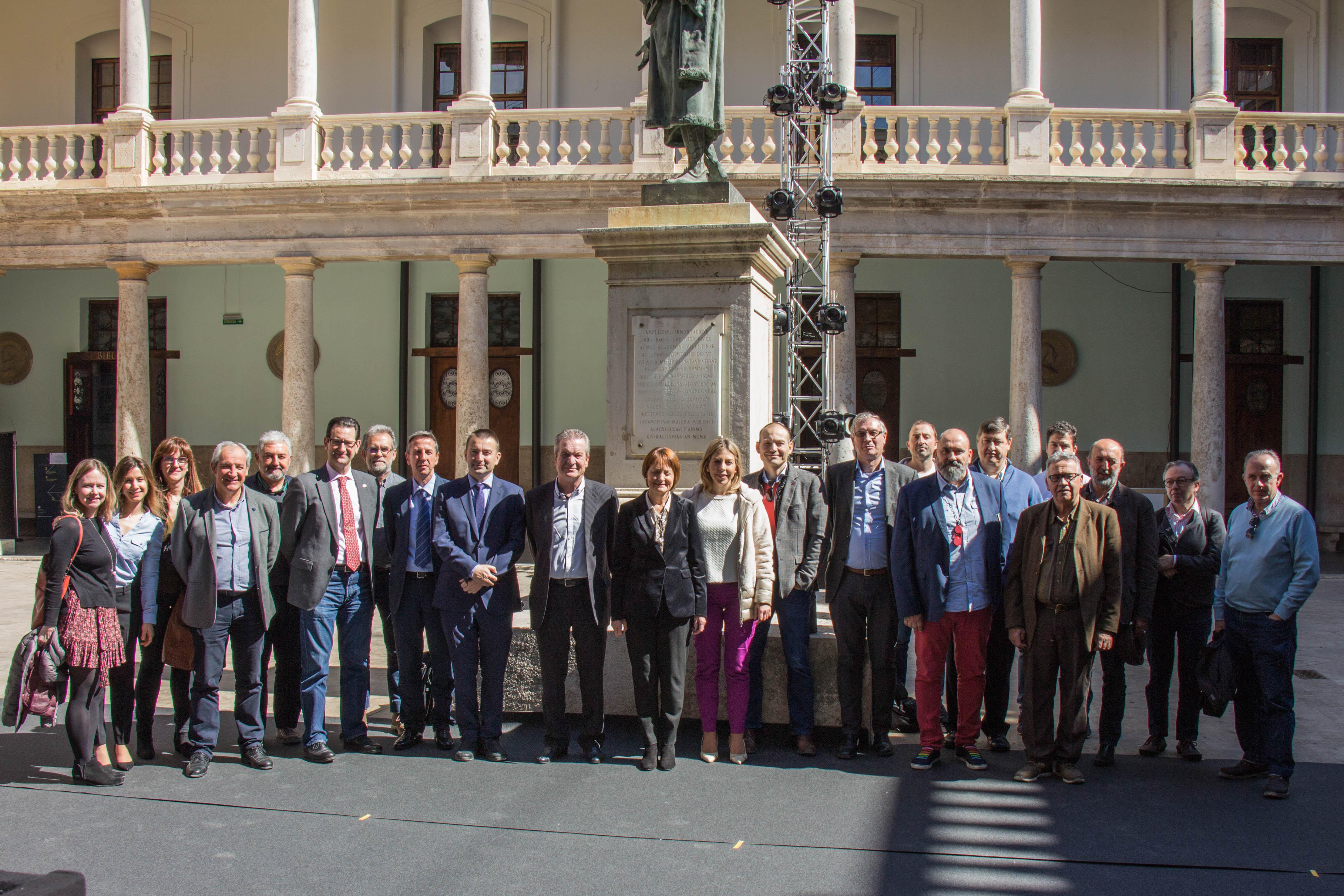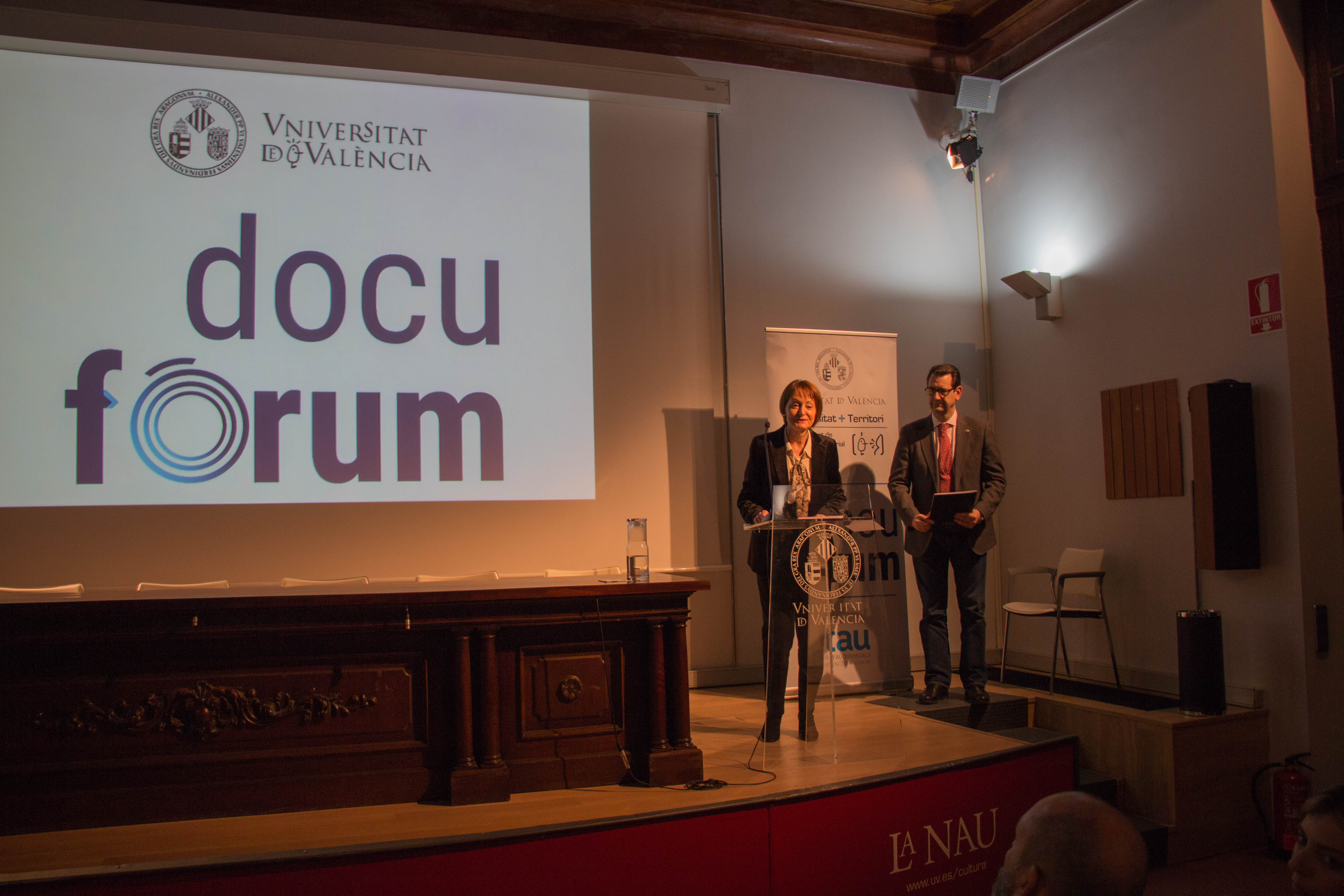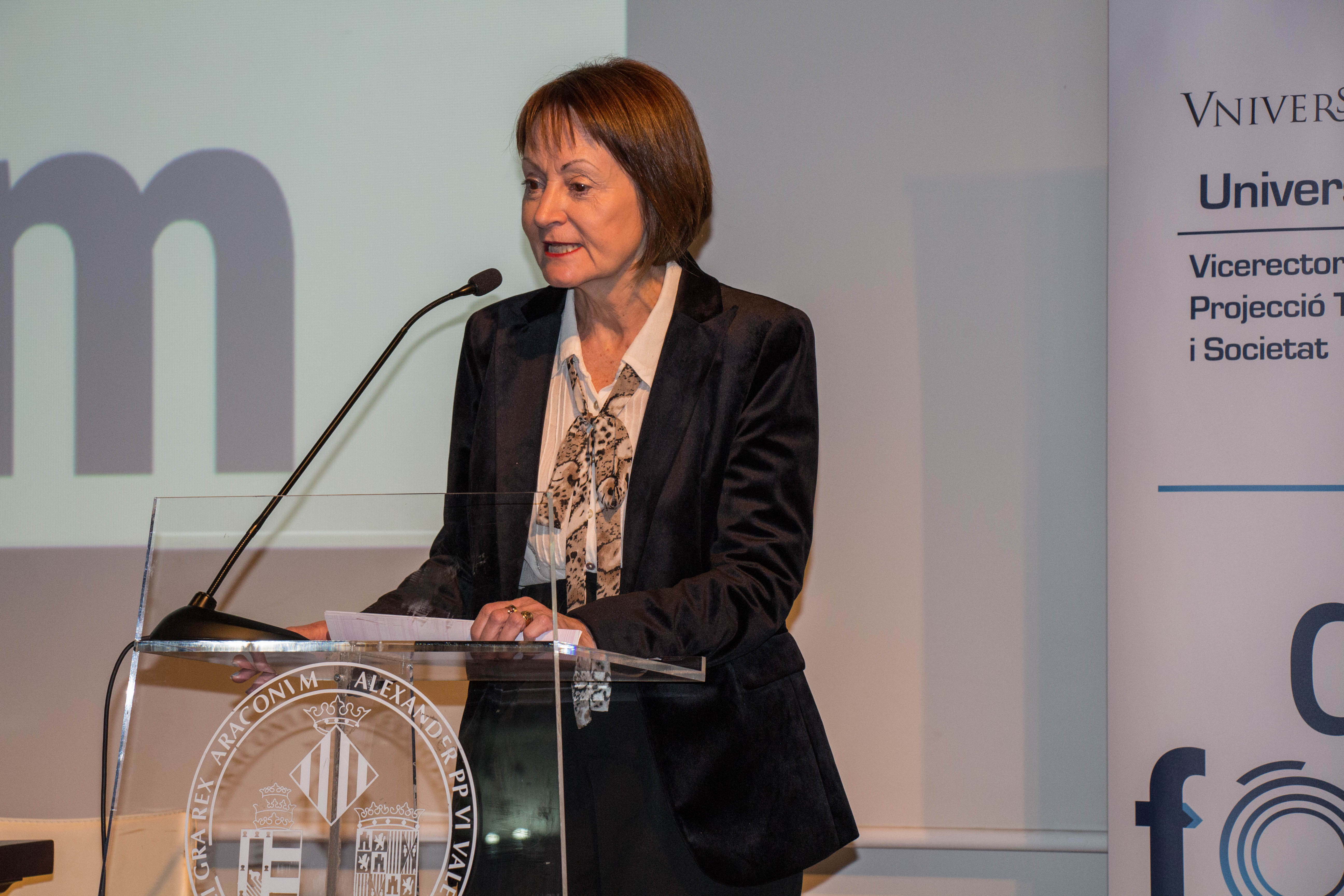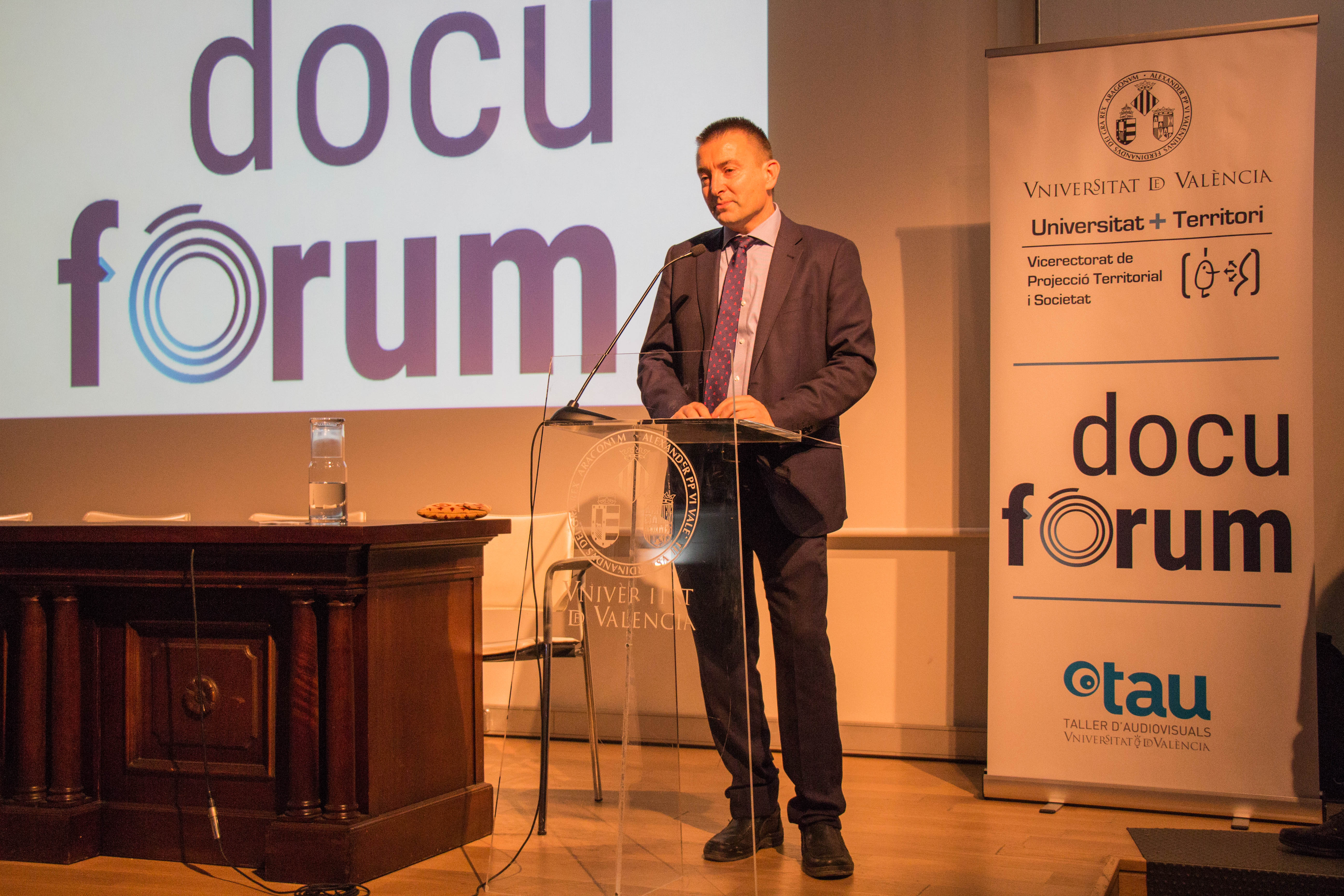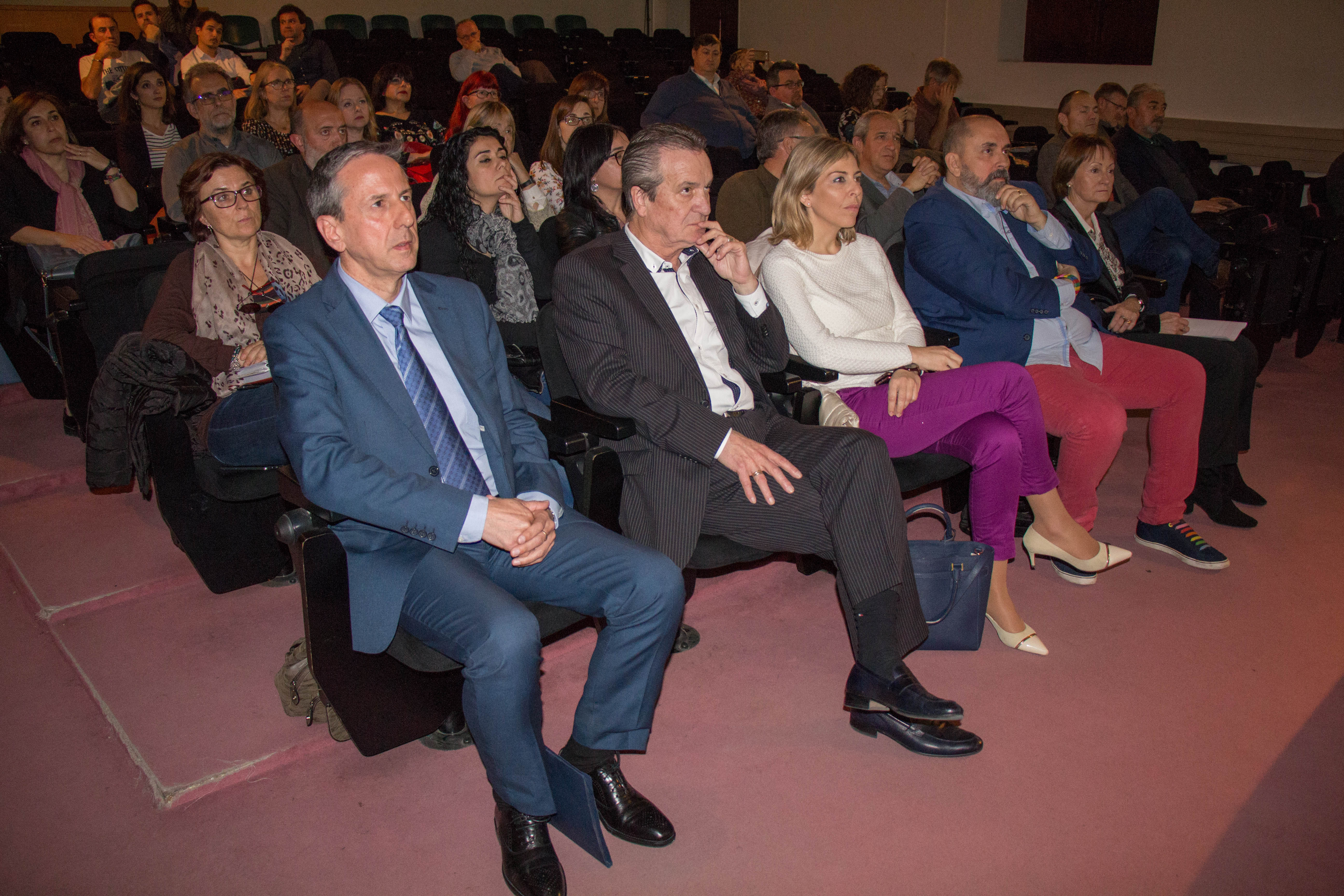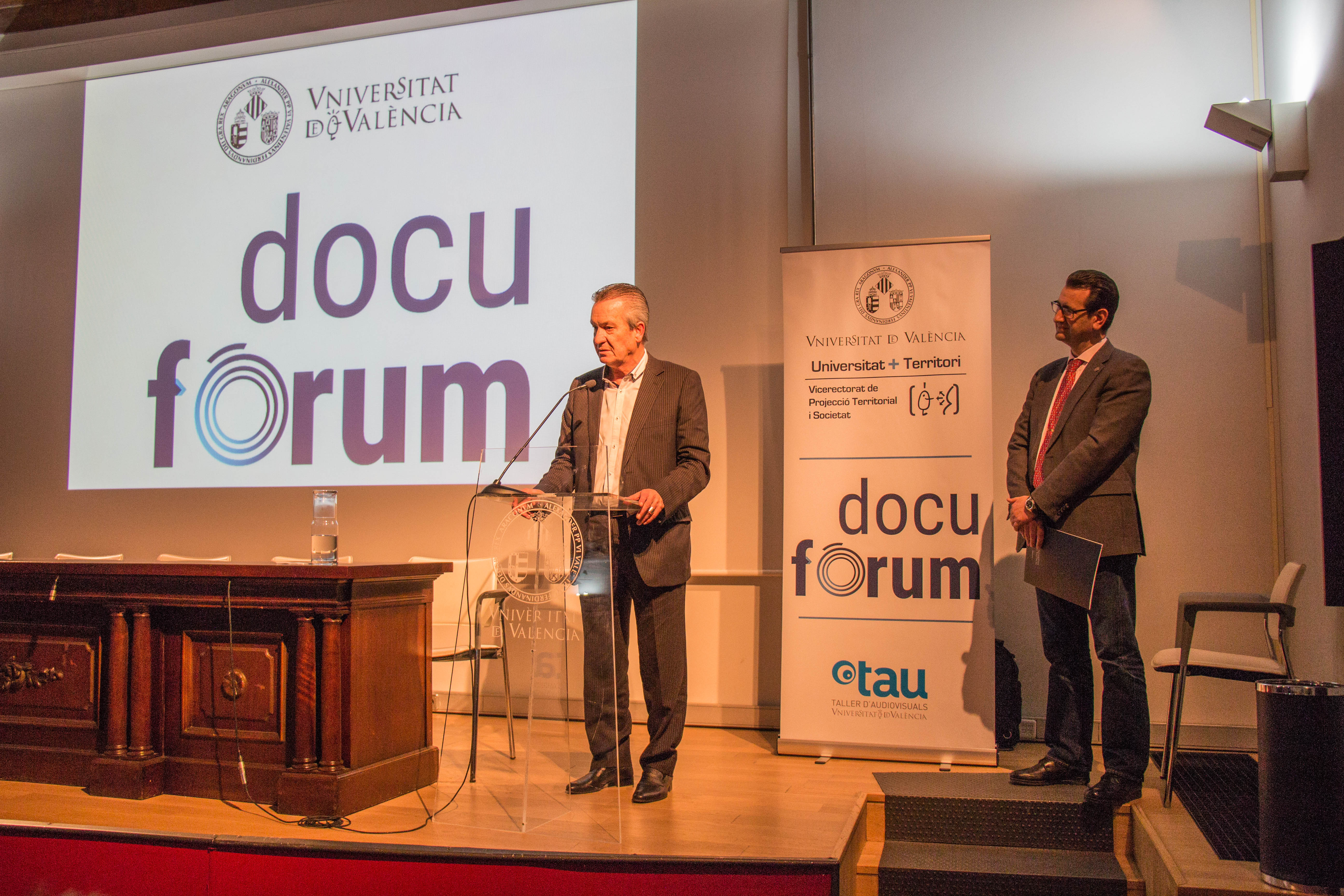Docufòrum is born, an audiovisual series of the Universitat de València with a social and territorial purpose
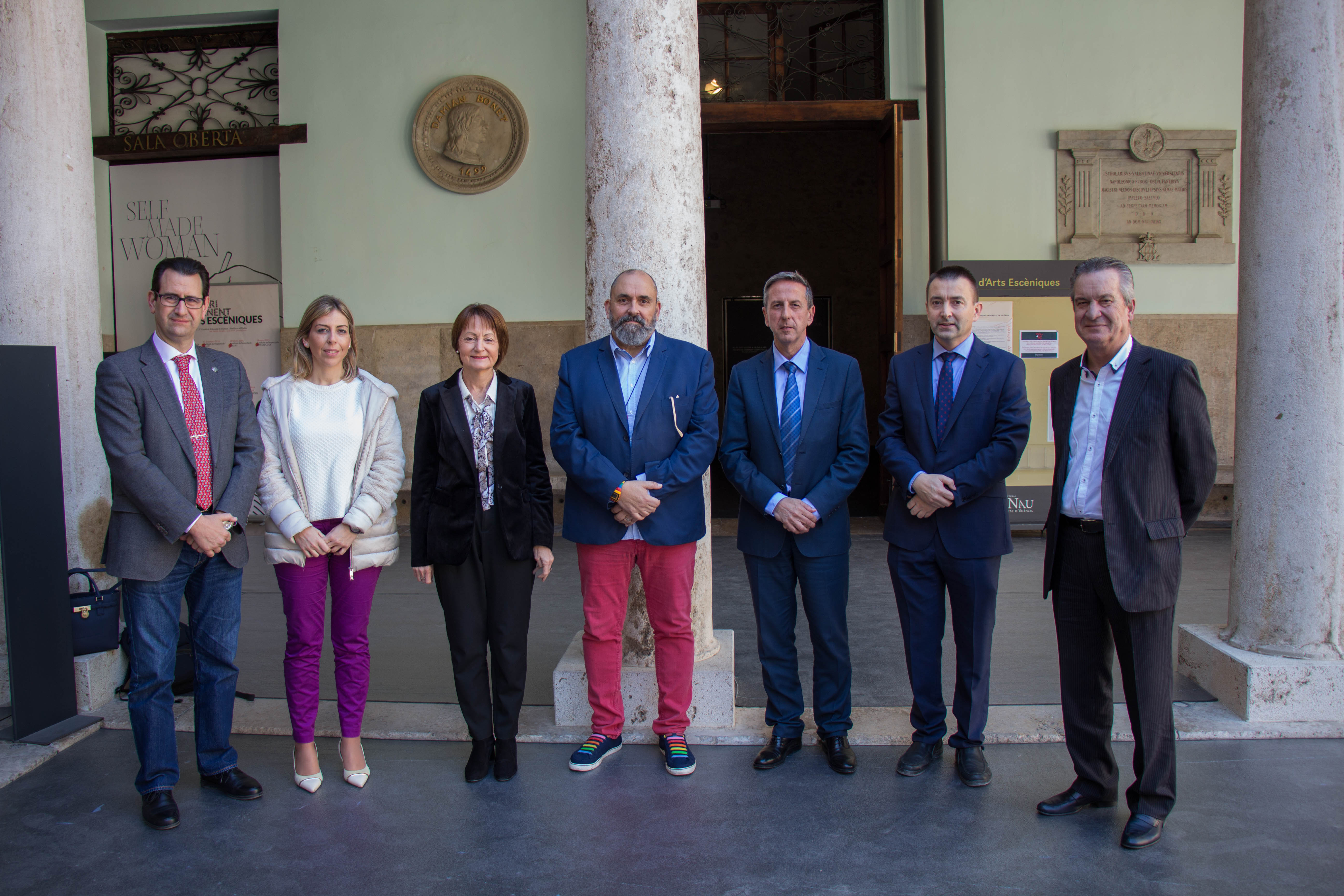
On the 14th of March, in the Cultural Centre ‘La Nau’ of the Universitat de València, has taken place the presentation of ‘Docufòrum’, a documentary series produced by the Universitat de València with the aim of being projected in the Valencian regions as a starting point in discussion forums. The first five videos recorded in 2018 have focused on the topics of regional economic cycles, the Valencian cooperativism, the Valencian touristic landscapes, the Valencian labour market and the social exclusion.
The principal of the Universitat de València, María Vicenta Mestre, presented on the 14 of March in the ‘Aula Magna’ of ‘La Nau’ of the Universitat this programme of multidisciplinary documentaries along with the vice-principal of territorial projection and society, Jorge Hermosilla, and the representatives of the entities which have contributed to the funding of this series: Enric Nomdedéu, Regional Secretary for Employment and the general director of LABORA; Francisco Álvarez, general director of Economy, Entrepreneurship and Cooperativism of the Generalitat Valenciana; José Luis Wagner, responsible for the area of touristic competitiveness of Tourism in the Valencian Community; and Francisco Alós, director of Social Business Responsibility of the Caixa Popular.
The principal of the Universitat, Maria Vicenta Mestre, remarked that ‘the audio-visual greatness of this series makes evident the high quality not only of the research developed in the Universitat de València, but also of the TAU team, who leads the audio-visual university sector at a national level.’
For the principal, in a society like the present, which is typified by the growing importance of the audio-visual linked to the interpersonal communication, Docufòrum contributes to ‘new forms of telling stories, to highlight the work made by the Universitat de València for the Valencian society, fulfilling our objectives: to contribute to the cultural, social and material development of our land and the Valencian society.’
The vice-principal Jorge Hermosilla has influenced on the importance of the institutional collaboration, since ‘this programme would not have been possible without the support of institutions and entities committed with the Valencian society and have made possible that ‘Docufòrum’ comprises 20 audio-visual projects which will be finished by the end of the year.’
Enric Nomdedéu, Regional Secretary for Employment, praised the production of the documentary on the Valencian labour market which remarks ‘the importance of the territory as the only productive factor that provides difference and cannot be copied or relocated’.
Francisco Álvarez, general director of Economy, Entrepreneurship and Cooperativism has remarked the necessity of issuing to society concepts such as the regional economic cycle through informative methods as effective as the ‘Docufòrum.’
José Luis Wagner, responsible for the area of touristic competitiveness of Tourism in the Valencian Community, remarked the effectiveness of the ‘Docufòrum’ since ‘it is a dynamic and direct video about the Valencian landscapes that will easily be understood by the Valencian society’.
Francisco Alós, director of Social Business Responsibility of Caixa Popular, praised the two documentaries funded by Caixa Popular, ‘the Valencian cooperativism’ and ‘Youth and social exclusion’ and has assured that ‘Docufòrum’ makes evident the commitment of the Universitat de València with the Valencian society, ‘a commitment that Caixa Popular has too, and its participation in this project obeys to the will of achieving a more fair and sustainable society’.
Docufòrum, more than a media project
Docufòrum is an audio-visual format which is led by the Office of the Vice-Principal for Territorial Projection and Society and which is made in high quality (HQ) by the Taller d’Audiovisuals de la Universitat (TAU), and which deals with actual topics of social interest in a documentary style. The documentaries will be projected in the Valencian territory in a programme of discussion forums that said Vice-Principal will organise in the Valencian Region. Furthermore, these documentaries will be available in the education institutions of the Valencian Community and will be on a programme of the Valencian television.
Docufòrum is not only born with an informative aim but also with the objective to stimulate discussions and social participation. The documentaries are 15-20 minutes long and in each one of them there are opinions of specialists as well as from the Universitat de València as from the social or business field. A new season of this documentary series is being prepared, so that at the end of 2019 there will be a score of documentaries; more topics will be added, as for example the history of the Universitat de València in Ontinyent, the patrimonial value of the ‘Tribunal de las Aguas’, the formation in territorial culture or the importance of the orchards in Valencia.
Docufòrum, a choral and participative programme
Docufòrum is the result of a choral work in which the scriptwriters are professors of the Universitat de València: Francisco Martínez (Theory of Languages and Science of information) and Rafa Roca (Catalan Philology), have written the script using the content provided by the experts that appear in each one of the episodes in the series.
In this first season the responsible of content have been: Joan Ramón Sanchis in the documentary ‘La Economía del Bien Común’ director of the Economy Department of the regional Economic cycles of the UV; in the episode ‘El cooperativisme valencià’ the director of IUDESCOOP, José Luis Monzón; in ‘Paisajes turísticos valencianos’ the professor of the Department of Commercialisation and Research of the UV, Walesska Schlesinger, and the vice-principal Jorge Hermosilla, who also has been in charge of the episode ‘El mercado laboral valenciano y el territorio’; and in the documentary ‘Juventud y exclusión social’ the content producers have been the professors from the Faculty of Psychology Paula Samper, Elisabeth Malonda and Ana Llorca.



